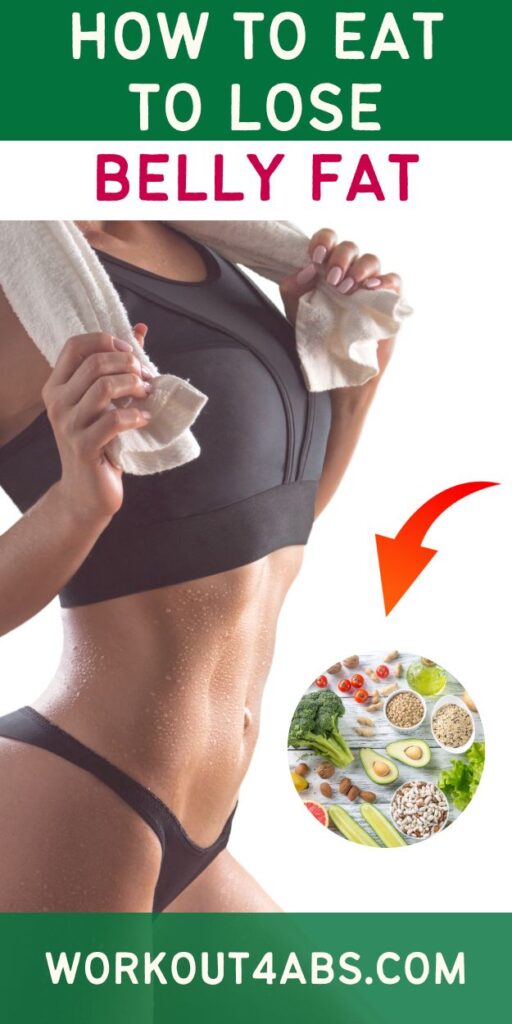How to eat for abs will vary depending the muscle building phase you are in. The flavors on your plate can play a pivotal role in your success. This article explores the idea that the phase you’re in during your muscle-building program should dictate the level of taste in your diet, revealing the crucial connection between flavor and fitness goals.
Eating Tasty Food Will RUIN Your Diet And Physique?
If you enjoyed these tips, please save this pin to your Pinterest Board.

As You Gain Muscle Your Hunger Falls
As you gain muscle weight through resistance training and strength-building exercises, your hunger may decrease due to several factors:
- Increased Metabolic Rate: Muscle tissue is more metabolically active than fat tissue. It requires more energy (calories) to maintain muscle, even at rest. As you gain muscle mass, your basal metabolic rate (BMR) increases, which means your body burns more calories just to maintain its current weight. This can lead to a reduced feeling of hunger because your body is expending more energy without needing extra food.
- Improved Blood Sugar Control: Resistance training can enhance insulin sensitivity, allowing your body to more efficiently regulate blood sugar levels. Stable blood sugar levels help prevent sudden drops in glucose, which can trigger feelings of hunger or cravings for sugary foods.
- Enhanced Satiety: Muscle-building exercises can increase the production of hormones like peptide YY (PYY) and glucagon-like peptide-1 (GLP-1), which promote feelings of fullness and satiety. These hormonal changes can lead to reduced appetite.
- Increased Protein Intake: Many people who engage in strength training tend to consume more protein to support muscle growth and repair. Protein is known for its ability to promote feelings of fullness and can help control appetite.
- Improved Body Composition: As you gain muscle and reduce body fat, your overall body composition improves. Muscle takes up less space than fat for the same weight, so you may notice a change in your body’s appearance even if the number on the scale doesn’t change significantly. This can lead to improved body satisfaction and less emphasis on eating.
- Psychological Factors: Engaging in regular exercise, including strength training, can have positive effects on mental well-being. It can reduce stress and anxiety, both of which can contribute to emotional eating or increased appetite.
It’s important to note that while muscle gain can lead to decreased hunger, individual responses to exercise and dietary changes can vary. Some people may experience an increase in appetite due to factors like increased energy expenditure during workouts or specific dietary preferences.
If your goal is to manage your appetite while gaining muscle, it’s essential to maintain a balanced diet that supports your nutritional needs, including an adequate intake of protein, carbohydrates, and healthy fats. Listening to your body’s hunger cues and eating when hungry is also crucial for overall health and fitness success. Consulting with a registered dietitian or fitness professional can provide personalized guidance tailored to your specific goals and needs.
If you enjoyed these tips, please save this pin to your Pinterest Board.

Eat Blander Foods in the Weight Loss Phase
Eating blander foods during a weight loss phase in a muscle-building program can have several benefits:
- Portion Control: Bland foods often have simpler flavors and are less likely to be hyperpalatable, meaning they are less likely to trigger strong cravings or overeating. This can make it easier to control portion sizes and manage calorie intake, which is crucial for weight loss.
- Reduced Calorie Density: Blander foods tend to be lower in calorie density because they are less likely to contain excessive amounts of added fats, sugars, or highly processed ingredients. This can help you feel full and satisfied while consuming fewer calories.
- Improved Compliance: Bland foods can be easier to stick with over the long term because they are less likely to lead to flavor fatigue or food burnout. When you enjoy your meals without overly stimulating flavors, you’re more likely to adhere to your diet plan consistently.
- Nutrient Density: Bland foods can still be nutritious and provide essential nutrients without the need for excessive seasonings or flavorings. Nutrient-dense foods are essential for maintaining health while losing weight or building muscle.
- Simplicity and Tracking: Bland foods are often simpler to prepare and track in terms of calories and macronutrients. This makes it easier to monitor your dietary intake and adjust it as needed to meet your specific goals.
- Focus on Protein and Whole Foods: When you opt for blander foods, you are more likely to rely on whole foods like lean proteins, vegetables, and grains, which are essential for muscle building and overall health. These foods provide the necessary nutrients and amino acids to support muscle growth.
- Reduced Processed Food Intake: Highly processed and flavorful foods are often calorie-dense and may contain additives, preservatives, and unhealthy fats. Choosing blander options can help you reduce your intake of processed foods, which can be detrimental to your health and weight loss goals.
While bland foods can be beneficial during a weight loss phase, it’s important to strike a balance that allows you to enjoy your meals and stay motivated. You don’t need to eliminate all flavor from your diet; instead, focus on using herbs, spices, and healthy condiments in moderation to enhance the taste of your meals without adding excessive calories.
Remember that individual preferences vary, and it’s crucial to find a dietary approach that works for you and aligns with your goals. Consulting with a registered dietitian or nutritionist can help you create a personalized meal plan that balances flavor, nutrition, and adherence to support both weight loss and muscle-building objectives.
If you enjoyed these tips, please save this pin to your Pinterest Board.

Home › Aesthetic Body Plan ›How to Eat for Abs